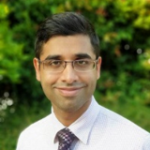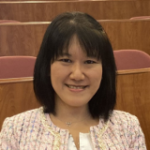About the Affilates Programme
The CTLT Academic Affiliates Programme (CAAP) is a new development opportunity for full-time faculty members offered by the Centre for Teaching, Learning and Technology (CTLT) to nurture and develop our faculty members to lead and make a positive difference to the learning and well-being of their students, peers and the wider NUS community.
Aims:
The CTLT Academic Affiliates Programme is designed to bring about the following goals:
- develop faculty members who are able to lead and facilitate educational change by enhancing their leadership towards professional learning through partnership with CTLT;
- bring new perspectives to the work of CTLT through immersing and working closely with academic developers on our programs, workshops, initiatives related to teaching and learning and other aspects of academic development work in the Centre; and
- promote greater outreach by fostering, mentoring and sharing good practices with peers, colleagues and the wider NUS community.
Collaborating Opportunities:
The Academic Affiliates will collaborate and work closely with CTLT academic developers (may include other colleagues) to plan and co-develop projects in strategic professional learning areas such as:
- existing CTLT programmes and initiatives
- local programme / initiative within faculty/department with CTLT support
- new CTLT session / workshop / e-module
- inquiry project
Choice of Projects (suggested examples):
| Aim | Generative question | Time commitment (excludes preparation) |
| To plan, design, develop and evaluate a comprehensive programme to enhance teaching assistantship across all levels. | How do we prepare and support TAs to engage students meaningfully in their learning? | At least 2 runs over 2 semesters |
| To enhance PDP-T for early career academic development pathways | What kinds of PD do early career academics need to teach well and develop their capacities? | 2 runs over 2 semesters |
| To prepare and mentor junior colleagues for promotion on different career tracks | How to create and implement a mentorship programme within the department? | 1 session per month, over a 6-month period |
| To prepare and mentor junior colleagues to apply for university teaching awards. | How to create and implement a learning community to help colleagues prepare for teaching awards? | 1 session per month, over a 6- month period |
| To plan, design, develop, implement and evaluate a CTLT course to enhance faculty members’ teaching skills – e.g., curriculum development, pedagogy, assessment & feedback, technology-enhanced learning, etc | What kinds of PD do faculty members need to teach well and develop their capacities? | At least 2 runs over 2 semesters |
| To design and carry out an inquiry study on a teaching/learning issue within the department/faculty/school. | How to carry out an inquiry study to address a teaching/learning problem? | Inquiry project timeline over a year |
Proposed Timeline of Project Activities:
Participation and Eligibility:
The initiative is open to NUS faculty in all career tracks, including tenure track, educator track, clinical faculty, and others.
This is a 1-year programme, with possibility of renewal on a case by case basis.
How to Participate:
Participation should be endorsed by the Dean, Vice Dean or Head of Department and CTLT to be notified of their support of the faculty member serving in this role.
For further information about the teaching portfolio course, please contact:
| A/P SOO Yuen Jien Director, Teaching & Learning, CTLT Email: sooyj@comp.nus.edu.sg |
| Mark GAN Associate Director, CTLT e-mail: cdtgjs@nus.edu.sg |
Our Inaugural CTLT Academic Affiliates

Becoming a Reflective Educator
Nina POWELL is a Senior Lecturer in the NUS Department of Psychology at the Faculty of Arts and Social Sciences (FASS). Her research focuses on judgment, certainty, and decision-making in children and adults, both in the context of moral decision-making and education. Nina is also Deputy Director of Undergraduate Studies in Psychology, a member of CAFÉ (Career Advancement for FASS Educators), and the co-founder of MADE in Psych (Mentoring and Demystifying Education in Psychology).
Nina can be reached at nina.powell@nus.edu.sg

Peer Observation and Learning –
The Teachers’ Guild
Alan CHENG Ho-lun 鄭浩璘 is a Senior Lecturer in the NUS Department of Computer Science. His research interests include computational geometry, parametric surfaces, computer graphics, visualization. He was a teaching assistant during his master degree and received the Best Teaching Assistant Award in 1996 at HKUST. During the Ph.D. years, he was a visiting scholar in the BioGeometry Center in Duke University.
Alan can be reached at hcheng@comp.nus.edu.sg

Competencies of Teaching Assistants
Rajesh Chandrasekhara Panicker is a Senior Lecturer in the NUS Department of Electrical and Computer Engineering. He enjoys teaching courses related to digital and embedded systems, and his research interests are in biomedical circuits and systems, embedded systems, signal processing and pattern recognition. He is a member of the IEEE, and a reviewer for several leading international journals and conferences.
Rajesh can be reached at rajesh@nus.edu.sg

Students’ Engagement and Wellbeing
Cindy has over 10 years of experience in Chemical Engineering Education. Currently, she is Senior Lecturer and co-Director of the Chemical Engineering (MSc Programme) with the Department of Chemical & Biomolecular Engineering, NUS. Cindy has keen interest and training in life-long learning and facilitating adult learning. She is a committee member of the IChemE Education Special Interest Group and also in the focus groups of Sustainable Production and Digitalization, respectively. She has been actively developing and introducing new courses and Graduate Certificate Programme to the Chemical Engineering Curriculum in the area of Sustainability to prepare and educate students on new technologies and skills in sustainable development in the Chemical Industry. She has a keen interest to promote student learning engagement and well-being both during their undergraduate and post-graduate journey.
Web: https://blog.nus.edu.sg/chellyc
Email: chellyc@nus.edu.sg

Improving Feedback for Teaching and Learning
NORHAYATI Ismail has been teaching with the Centre for English Language Communication (CELC), NUS, for the past 25 years. Prior to joining CELC, she has worked in editing with an international law publishing firm and corporate relations for a professional services firm. As an Educator, she has designed, coordinated and taught a range of professional communication courses to undergraduates and graduates across diverse disciplines (Business, Computing, Design & Environment (Real Estate), Engineering). She has also developed and taught business writing courses to working adults and English as a Medium of Instruction Training Programme to content professors from regional universities. Her main research interest is feedback and student engagement through material design, questioning, and use of IT.
Norhayati can be reached at norhayati.ismail@nus.edu.sg
- Developing a Teaching Portfolio
- Scholarship of Teaching and Learning (SoTL)
- Open Conversations
- CTLT Affilates Programme (CAAP)
- Grants
- Undergraduate Teaching Opportunities Programme (UTOP)
- Course Design Institute (CDI)
- Continuing Professional Development (CPD)
- Blended Learning Course for Academic Teachers (Basic)
- Professional Development Programme – Teaching
- Teaching Assistants Programme (TAP)
- Home
- Professional Development
- CTLT Affilates Programme (CAAP)
Centre for Teaching, Learning and Technology
National University of Singapore
-
For Teaching & Learning matters:
- 15 Kent Ridge Road
Singapore 119225 - +65 6516 2071
- cdtsec@nus.edu.sg
- 2 Engineering Drive 4
NUS IT Building Level 3
Singapore 117584 - +65 6516 1637
- syafina3@nus.edu.sg
For Instructional Technology matters:

